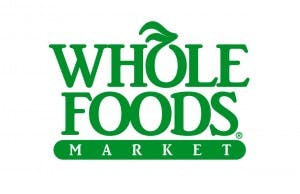
No longer is grocery shopping a chore. Whole Foods Market, Inc. (NASDAQ:WFM) has made it fun, adventurous and a gastronomic journey in leading a healthy lifestyle. While the stores are more upscale than traditional food stores and prices are steeper, Whole Foods’ 365 Everyday Value line will “fill your pantry without emptying your pocketbook.” Yet Whole Foods Market, Inc. (NASDAQ:WFM) shoppers are willing to shell out more for quality goods.
Investors, too, are willing to pay more for a quality investment, and they have been rewarded for holding Whole Foods shares.
The company recently padded investors portfolios after reporting hearty fiscal second-quarter earnings. The chain posted a 6.9% increase in same store sales for the second quarter. Profit rose 20% to $142 million, or $0.76 a share.
The largest U.S. natural goods grocer boosted its 2013 forecast to $2.89 a share, said sales for the current quarter are running at a hearty 9%, and reported it will triple its store count to about 1,000.
Wait — there’s more. Whole Foods Market, Inc. (NASDAQ:WFM) also announced a 2-for-1 stock split that will occur May 29. Companies like their stock to trade in a “sweet spot,” and won’t split shares if they think there is a good probability the price will fall back to that sweet spot on its own accord. That’s why [forward] splits are a bullish signal from management.
Investors ate all the news up and sent shares soaring 10%, or $9.39, to $102.10, following the release. It was the stock’s biggest jump in nine months.
Natural and Organic Food Industry Poised for Growth
In the wake financial meltdown of 2008, consumers grew cost-conscious. The natural and organic food industry was hit especially hard. But with consumers currently growing more comfortable about their finances and the state of the economy, they are starting to spend more for “quality” foods.
Indeed, the organic food industry is expected to grow by 50% over the next five years in the United States alone, according to business information company Market Line. This year, the organic/natural food industry is expected to grow a robust 8%. In comparison, the market for conventional food is forecast to grow at a meager 2%.
As a result, a plethora of the nation’s largest supermarkets are racing to add “pure” foods to their lineup. Many are even launching their own brands as this segment of groceries is far outpacing traditional grocery sales.
That’s good news for consumers. Strong growth and increasing popularity like that will eventually bring down natural food prices as competition heats up.
Sector Rivals
One retailer jumping on the natural-foods trend is The Kroger Co. (NYSE:KR). The Cincinnati-based grocery store chain has seen its natural foods division double over the last five years and is committed to expanding offerings in this segment.
In some 1,300 of The Kroger Co. (NYSE:KR)’s 2,500+ stores are Nature’s Market, stores within the store focused solely on natural foods. Everything here is natural.
Going natural is just one way the No. 2 U.S. grocery chain plans to juice its stock. The Kroger Co. (NYSE:KR) has spent plenty of its capital expenditures on research to track customer behavior in an effort to keep shoppers in stores longer and get them spending more. Ambitious share buybacks will also help the stock.
While The Kroger Co. (NYSE:KR) boasts some of best prices around, it faces stiff competition from Wal-Mart Stores, Inc. (NYSE:WMT).
Wal-Mart Stores, Inc. (NYSE:WMT) is the country’s largest grocer, with over 3,000 supercenters, and it accounts for roughly 22% of American food sales. It was also ranked by Consumer Reports as the second-worst chain, behind only Pathmark.
The retailer giant scored near the bottom based on service and food quality. In addition, stores received low scores based on cleanliness. But one-stop shoppers, and those focused on price, love the convenience.
Known for its low, everyday values, Wal-Mart Stores, Inc. (NYSE:WMT) believes you don’t have to be a food snob to want organic and natural foods, and has a growing line. The company recently reported in its Economic Customer Insight Report that its “natural and organic food sales are growing almost twice as much as traditional products.”
That’s evidence of not only the growing trend towards eating natural, but also proof you don’t have to break the bank to do so.
The Future Favors Whole Foods
As our food culture seeks items with preservatives and processed ingredients, and as consumers become even more label-conscious, savvy shoppers will frequent a store they can count on and trust.
Shoppers are also becoming more educated, and they are able to recognize the difference between organic, natural and wannabe products.
However, natural foods are not regulated. This leaves the meaning of that term mainly up to the grocers that sell them.
Here Whole Foods Market, Inc. (NASDAQ:WFM) has a distinct edge. It’s revered for its strict standards of selling only the highest-quality, freshest, tastiest and best-looking products. And Whole Foods has made it easy and enjoyable to find healthy alternatives. Following a natural and organic diet isn’t rocket science, but it does take some planning.
The future does indeed favor Whole Foods Market, Inc. (NASDAQ:WFM) (pun intended). A growing distrust of synthetic foods, and a spotlight on obesity and related disease has spurred the creation of healthier snacks, beverages, baby food and more.
You see, the old adage “you are what you eat” is true. A fresh report from the University of Massachusetts Medical School found that even small amounts of occasional “indulgences” (aka junk food binges) may produce significant changes in gene expression that could negatively impact psychology and health.
Whole Foods Market, Inc. (NASDAQ:WFM) investors are poised to clean up on the growing “clean” eating shift.
The article A Whole Lot to Like About Whole Foods originally appeared on Fool.com.
Copyright © 1995 – 2013 The Motley Fool, LLC. All rights reserved. The Motley Fool has a disclosure policy.